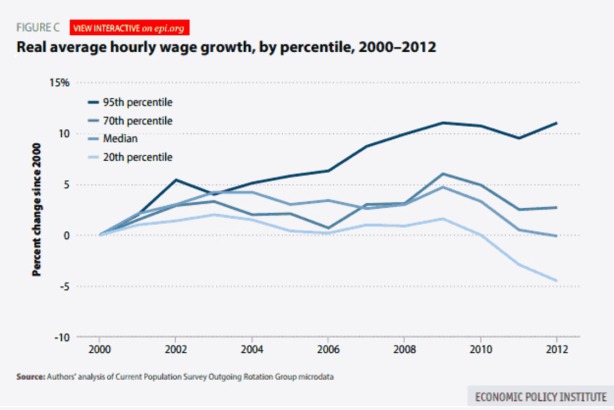[T]he sharing economy has succeeded in large part because the real economy has been struggling. A huge precondition for the sharing economy has been a depressed labor market, in which lots of people are trying to fill holes in their income by monetizing their stuff and their labor in creative ways.He takes a look at labor's share of economic growth and provides a couple of alarming charts...
how many full-time jobs have been replaced by part-time jobs since the recession of 2008:
what's happened to real wages:
Roose concludes:
A narrative about labor-market weakness isn't as uplifting as one about strangers learning to trust enough other with the help of ride-sharing apps. But it's a necessary piece of the puzzle. Tools that help people trust in the kindness of strangers might be the thing pushing hesitant sharing-economy participants over the threshold to adoption. But what's getting them to the threshold in the first place is a damaged economy, and harmful public policy that has forced millions of people to look to odd jobs for sustenance.

No comments:
Post a Comment